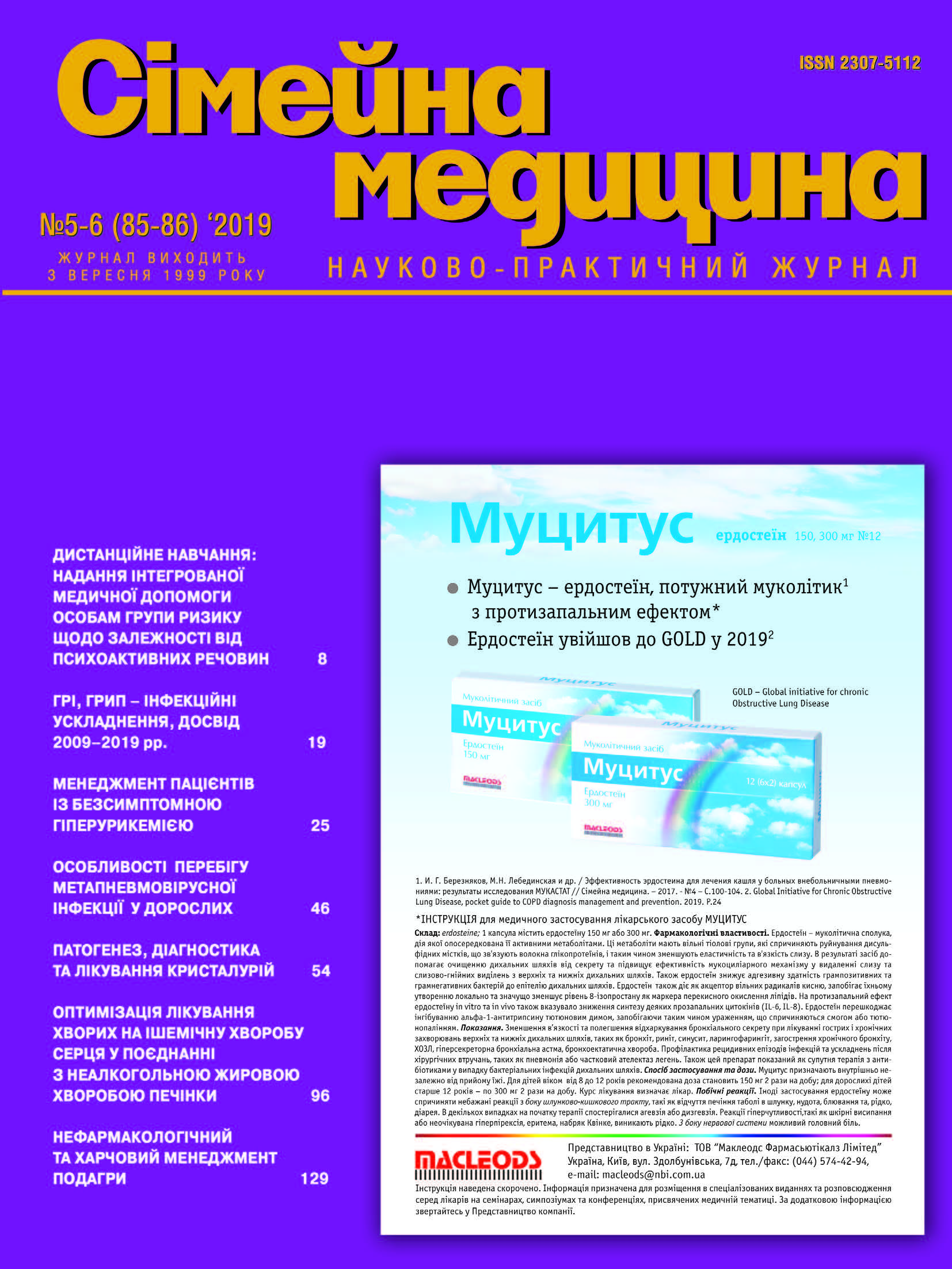Medico-social Characteristics of Women with Lower Response to Stimulation in Extracorporal Inference Program
##plugins.themes.bootstrap3.article.main##
Abstract
The objective: determination of medical and social characteristics in women with reduced response to stimulation (poor responders) in assisted reproductive technology programs.
Materials and methods. The study of medical and social characteristics of women with reduced ovarian response to stimulation by determining family status, education, income level, life priorities, which allowed to form an idea of social status, motives of patients’ treatment for infertility treatment.
Results. As a result of the study, among women with a reduced response to ovarian stimulation (poor responders) in the IVF clinic, patients of late reproductive age prevailed, namely, the average age of patients, in the main group was 38.6±3.9 years, and in the control group was 29.2±2.8 years. This causes them to relate to a more socially sustainable and socially active population who have been officially married, mainly in re-marriage, which has become the main motivation for patients to go to the MDT clinic for infertility. Realization of career growth, achievement of professional level of own qualification became the reason of postponement of birth of children and motivation of treatment for infertility treatment. Thus, in the main group, urban residents made up 78.4%, higher education had 79.4%. In the vast majority of women- «poor responders» were unhappy with the poor prognosis of infertility treatment, as they had little understanding of the physiology and extinction of the reproductive system. In 42.4% of cases, however, they were in favor of ART using donor gametes, whereas only 25.8% were in the control group.
Conclusion. The absence of desirable children creates psychological and social discomfort for the majority of women, and the rehabilitation of their reproductive function is a medico-social task that contributes to changing the quality of life of this patient group.##plugins.themes.bootstrap3.article.details##

This work is licensed under a Creative Commons Attribution 4.0 International License.
Authors retain the copyright and grant the journal the first publication of original scientific articles under the Creative Commons Attribution 4.0 International License, which allows others to distribute work with acknowledgment of authorship and first publication in this journal.
References
Айламазян Э.К. Планирование семьи (методы контрацепции) // Э.К. Айламазян. СПб., 1997. – 190 с.
Альбицкий В.Ю. Репродуктивное здоровье и поведение женщин России (медико-психосоциальное исследование)// В.Ю. Альбицкий, А.Н. Юсупова, Е.И. Шарапова. – Казань, 2001. – 248 с.
Колчии А. Психологические аспекты репродукции человека //Пробл. репрод. – 2005. – № 1. – С. 33–39.
Шарапова О.В. Современные проблемы охраны репродуктивного здоровья женщин: пути решения / О.В. Шарапова // Вопр. гинек. акуш. перинат. – 2003. – Т. 2, № 1. – С. 7–10.
Чекушин Р.Х. Медико-социальные аспекты бесплодия, как одного из факторов нестабильности брака // Р.Х. Чекушин. Фундаментальные исследования. – 2004. – № 4. – С. 91–91.





